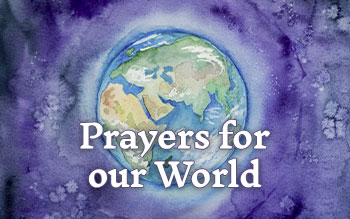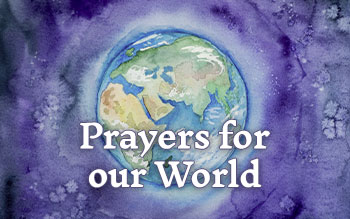Displaying items by tag: activists
Laos: another opposition activist killed
Amid growing concern over repression in Laos, another activist, Bao Mo Khaen, has been killed. Known for criticising the ruling Lao People’s Revolutionary Party online, he was reportedly detained by soldiers in Vientiane on 14 February, and his body was discovered beside a damaged motorbike six days later. His death follows other cases involving Lao dissidents in recent years, including enforced disappearances and attacks at home and abroad. Observers note that such incidents often coincide with politically sensitive periods such as the national election on 22 February. Laos remains a one-party state, and the election was conducted without opposition candidates. Economic pressures, rising debt and youth emigration have added to public discontent. Human rights advocates argue that the pattern of violence reflects efforts to silence dissent and instil fear. Authorities have not publicly provided detailed explanations regarding Khaen’s death, and concerns over accountability persist.
Nepal: activists trying to halt mass slaughter of animals
Animal rights activists are urging the Nepali government to halt the mass slaughter of animals during the Gadhimai festival, a tradition held every five years in a village near the Nepal-India border. Despite a 2016 supreme court order to phase out animal sacrifices, thousands of buffaloes, goats, and pigeons were reportedly killed this year. Participants believe that sacrificing animals pleases the goddess Gadhimai, bringing them good fortune and fulfilling wishes. Efforts by organisations like the Humane Society have led to a reduction in the number of animals sacrificed, but activists argue that more needs to be done. Local officials claim that measures are being taken to limit the practice, and some villagers have shown openness to alternatives, such as monetary donations instead of animal offerings. However, many community members resist change, viewing the sacrifices as an integral part of their 200-year-old cultural tradition. Activists continue to work on the ground, focusing on education and awareness to shift attitudes towards ending the practice.
BLM activists fear for their lives
‘If people constantly say they want to kill you, you don't feel safe at all’, says Aima, a Black Lives Matter (BLM) activist. Standing up for the rights of black people has a high price for many protesters in the UK. But lack of trust in the police means many threats go unreported. That trust has been eroded by decades of racism. An inquiry into botched investigations into the murder of black teenager Stephen Lawrence found institutional racism in London's Metropolitan Police. Despite some changes since then, black people and ethnic minorities are still disproportionately represented when it comes to police checks, imprisonment, and deaths in custody. A 2020 survey by the charity ‘HOPE not hate’ revealed 65% of people from ethnic minority backgrounds felt the police were biased against their community. When a new generation of activists addressed the UK’s racial divide they were met with curiosity and sympathy, but that turned into defensiveness and outright denial from some in Britain's ruling class and opinion influencers.
Iraq: assassinations in Basra
Dozens of activists have been killed in Iraq in recent years. In under a week, two have been assassinated and three narrowly survived murder attempts, as tensions between pro-Iran groups and a Western-leaning government claim new victims. Riham, an athletics coach who was deeply involved in anti-government protests, was shot dead in Basra on 26 August; five days earlier activist Tahsin died after being shot two dozen times. The targeted killings sent shivers down spines in Iraq’s civil society, already deeply disturbed by the killing in Baghdad of Al-Hashemi, a government adviser and widely respected historian. ‘The government and security forces have done nothing.’ said Ammar Al-Hilfi, a prominent Basra activist. In July a senior Iraqi official said the government suspected ‘possible assassinations’ as a reaction to a policy of extending state control.
Hong Kong 'seeking arrest' of fleeing activists
Police in Hong Kong are seeking the arrest of six pro-democracy activists living in exile in Western countries, including the UK, media reports say. The group reportedly includes former UK consulate worker Simon Cheng, well-known activist Nathan Law and US citizen Samuel Chu. They are wanted on suspicion of violating a new security law imposed in Hong Kong by Beijing, Chinese state TV reported, calling them "troublemakers". Hong Kong police declined to comment.
The development comes after legislative elections scheduled for September were delayed for a year by Hong Kong's government on Friday. It said the move was necessary because of a spike in Covid-19 infections, but the opposition accused it of using the pandemic as a pretext. The White House said the move undermined democracy.
Pro-democracy politicians had hoped to capitalise on anger in the Chinese territory about the new security law to win a majority in the Legislative Council (LegCo). Many in Hong Kong, a former British colony handed back to China in 1997, fear that unique freedoms meant to be guaranteed until 2047 are under serious threat.
The UK and Australia are among countries that have suspended their extradition treaties with Hong Kong in recent weeks. Germany did so on Friday - one of those reported to be on the new "wanted list" has received asylum there.
Who are the 'wanted'?
Chinese state TV network CCTV said six people were wanted on suspicion of inciting secession or colluding with foreign forces - both crimes can be punished with up to life in prison under the new security law.
The six, according to CCTV and Hong Kong media, are:
Simon Cheng, a former employee of the UK's Hong Kong consulate who was recently granted political asylum in Britain. Nathan Law, 27, a high-profile activist who has fled to the UK.
The Hong Kong residents ready to leave for the UK…
Samuel Chu, a US citizen. He is the son of Reverend Chu Yiu Ming, a Baptist minister who was one of the founders of the 2014 "Umbrella Movement". Mr Chu runs the Washington DC-based Hong Kong Democracy Council and said he last visited Hong Kong in November 2019. "I might be the first non-Chinese citizen to be targeted, but I will not be the last. If I am targeted, any American and any citizen of any nation who speaks out for Hong Kong can, and will be, too," he said.
The national security law carries extraterritorial provisions that say anyone, including non-Hong Kong residents, can be charged under it. China says the law is necessary to restore stability and order in the global financial hub.
Ray Wong, a pro-independence activist who fled to Germany in 2017 and is now in Britain, told the BBC that the list of "wanted" exiles had been drawn up to "intimidate" pro-democracy activists who are trying to drum up international support for their cause.
Lau Hong (also known as Honcques Lau), an 18-year-old now in the UK, first came to prominence in November 2017 when he brandished a pro-independence banner next to Hong Kong's leader Carrie Lam. "Come arrest me in the UK," he was quoted as telling a journalist on Friday.
Wayne Chan, another pro-independence activist, is in an undisclosed country. "For me, the situation faced by Hong Kongers is even more dangerous than what I face. I can't think too much about my personal safety," he told Reuters news agency.
More info: https://www.bbc.co.uk/news/world-asia-china-53616583
Pray: that the new security law will be overturned
Pray: for these 6 people and many more who have campaigned for their democratic rights and freedom of speech – that they will not be unjustly treated or imprisoned.
Pray: that the elections will not be unduly delayed, and that the rights and freedoms of the people of Hong Kong will be restored.
Spain: conflict in Catalonia
Catalonia is a semi-autonomous region in north-east Spain whose history dates back almost a thousand years. The wealthy region has 7.5 million people, with their own language, parliament, flag, anthem, and police force. It also controls some of its own public services. Catalan nationalists have long complained that their region sends too much money to poorer parts of Spain, as taxes are controlled by Madrid. Last October about 90% of Catalan voters backed independence, in a turnout of 43%. Recently Spanish police arrested 9 Catalan independence activists in Barcelona. They face charges of rebellion, terrorism and possession of explosives used in bomb-making. They are associated with the Committees for the Defence of the Republic (CDR), a network of radical groups that advocates direct action to secure independence from Spain. CDR has previously blocked major roads and railway lines. Police believe the activists plan to carry out sabotage and violent attacks on the anniversary of the referendum on independence.
Afghanistan: Women Activists Fear Return Of Repressions
Khalida Khorsand, a 35-year-old rights activist from the western Afghan city of Herat, is skeptical about Taliban claims that it has dispensed with its strict rules against girls' education and women working.
The militant Islamic group made the declaration in the midst of recent peace talks with U.S. envoy Zalmay Khalilzad aimed at bringing an end to the long U.S. military presence in Afghanistan.
But Khorsand still remembers the notorious repressions under Taliban rule as a teenager in the western city of Herat when she risked the death penalty to study literature in a class disguised as a women's sewing group.
"After nearly 18 years without the Taliban in power, we now see that the Taliban are coming back in Afghanistan and there haven't been big changes for women's lives -- especially in rural areas," says Khorsand, who has dedicated much of her life since 2001 to advancing women's rights in western Afghanistan.
Even without the Taliban in power in Herat, Khorsand says, many hard-fought gains for women since the collapse of the Taliban regime already are under threat.
She attributes that situation to what she calls "a Taliban way of thinking" by many Afghans and a proliferation of unregistered religious schools in Herat teaching "radical Islam" to as many as 50,000 young people.
If the Taliban gets a role in the Afghan government as part of a peace deal, as Khorsand expects, she fears a floodgate will be opened for resurgent "radical Islamists" in Herat.
"I don't know why this has been allowed to happen under the current government of Afghanistan since 2014," Khorsand laments. "They are not paying attention to the rise of fundamentalists and radical groups in Herat.
"Now the city has become a safe haven for the radical groups that support the ideology of the Taliban," Khorsand says. "The fundamentalist groups in Herat are very organized and have a lot of money. They take the young people into madrasahs and teach to them the principles of the Taliban, and they are having an enormous impact on the young generation."
Those groups already have gained backing from municipal authorities for an unofficial ban on live musical performances in Herat and for a ban on celebrating Valentine's Day -- with both practices being declared "unIslamic."
In rural areas of Herat Province, where Khorsand worked for years to help women who are victims of domestic violence, Khorsand says she has seen disturbing signs of support for the punishments doled out by the Taliban under its strict enforcement of Islamic Shari'a law -- amputating the hands of thieves, publicly flogging people for drinking alcohol, and stoning to death those who engage in adultery.
Students at Herat's madrasahs deny being radical Islamists. But they also support a return to the prohibitions and punishments of the Taliban era.
"Allah says cut off the hands of a male thief and a female thief," says Jan Agha Jami, a 21-year-old at the Fakhr al-Madares madrasah in Herat. "When men and women commit adultery, whip them if they are single. If they are married, they should be stoned, and the Koran's rulings should be implemented in public.
"Music concerts are absurd because they are forbidden," Jami tells RFE/RL. "Music is bad for the mind, memory, and even human psyche. When a girl performs in front of strangers, the whole society is corrupted."
Reflecting on the growing popularity of such beliefs in Herat, Khorsand says "it makes no difference for women in Afghanistan if the Taliban exists or doesn't exist."
"The Taliban's way of thinking about women is the way many people are thinking in Afghanistan," she says. "A lot of Afghans have traditional ways of thinking and they believe the talk of the Taliban. Unfortunately, much of their way of thinking is against the rights of women."
Move Forward, Step Back
To be sure, Khorsand says there have been important advances for Afghan women since 2001 -- including language in the Afghan Constitution that enshrines the right to education and to work.
Women are members of parliament and can be seen on television, competing in sports, and performing in concerts in Kabul.
But the Afghan government since the collapse of the Taliban regime has included many conservative Islamists and former warlords whose attitudes about women are similar to the Taliban.
Sima Simar, the head of Afghanistan's Independent Human Rights Commission, says the gains for women since 2001 can easily be overturned and have rarely been implemented in rural areas where most Afghans live.
The 2018 Women, Peace, and Security Index by Georgetown University and the Peace Research Institute of Oslo ranks Afghanistan as the second-worst place in the world to be a woman. Only Syria was ranked worse.
That study notes that only 16 percent of Afghanistan's workforce is female and that half of all Afghan women have four years or less of education.
UNICEF, the United Nations children's agency, says only half of school-aged Afghan girls now go to school, and that only one out of five girls under 15 are literate.
Nearly two out of three Afghan girls are married when they are teenagers or younger. On average, they are sent by their parents into arranged marriages between the ages of 15 and 16.
Most imprisoned Afghan women have been jailed for so-called "morality crimes," such as leaving an abusive husband or demanding to marry a man of their own choosing.
Pray: That the steady advances being made towards improving womens rights will not be overturned.
Pray: That boys and girls will get equal access to good education, especially in the rural areas.
Pray: For improved employment opportunities for women.
Pray: For those who work with and speak up for the oppressed women and children in Afghan society - that their voice will be heard and acted upon.
Algeria: taking down a picture frame
82-year-old President Bouteflika has not spoken in public in years. At public ceremonies or meetings his handlers place a framed picture of him on an easel. The government has announced that Bouteflika, who suffered a debilitating stroke in 2013, will seek a fifth term of office. Protests erupted, and continue. 70% of Algeria's population is under 30. Millions are fed up with a state-run economy that is flagging. Despite demonstrations, Mr. Bouteflika’s circle still plan to wheel him out for April’s elections. Meanwhile influential legislators from the opposition resigned from parliament to support the grassroots demands for change. The stakes are high. Europe counts the country as a major energy exporter, a counter-terrorism ally, and a partner in controlling migration flows from Africa. A young population with high expectations no longer accepts an authoritarian system. Repercussions could spread far beyond Algeria. See







